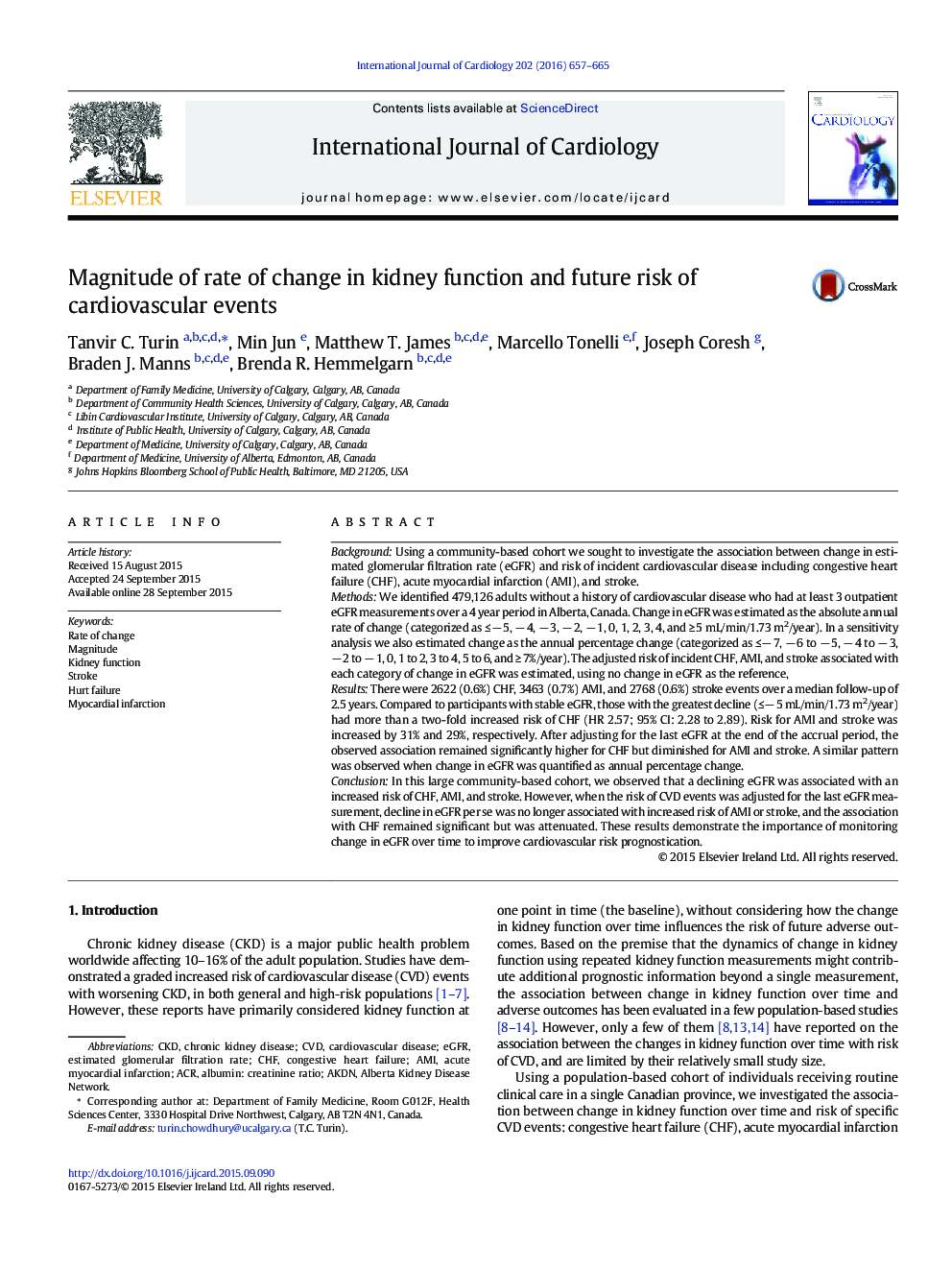| کد مقاله | کد نشریه | سال انتشار | مقاله انگلیسی | نسخه تمام متن |
|---|---|---|---|---|
| 5965423 | 1576149 | 2016 | 9 صفحه PDF | دانلود رایگان |
BackgroundUsing a community-based cohort we sought to investigate the association between change in estimated glomerular filtration rate (eGFR) and risk of incident cardiovascular disease including congestive heart failure (CHF), acute myocardial infarction (AMI), and stroke.MethodsWe identified 479,126 adults without a history of cardiovascular disease who had at least 3 outpatient eGFR measurements over a 4 year period in Alberta, Canada. Change in eGFR was estimated as the absolute annual rate of change (categorized as â¤â 5, â 4, â 3, â 2, â 1, 0, 1, 2, 3, 4, and â¥Â 5 mL/min/1.73 m2/year). In a sensitivity analysis we also estimated change as the annual percentage change (categorized as â¤â 7, â 6 to â 5, â 4 to â 3, â 2 to â 1, 0, 1 to 2, 3 to 4, 5 to 6, and â¥Â 7%/year). The adjusted risk of incident CHF, AMI, and stroke associated with each category of change in eGFR was estimated, using no change in eGFR as the reference,ResultsThere were 2622 (0.6%) CHF, 3463 (0.7%) AMI, and 2768 (0.6%) stroke events over a median follow-up of 2.5 years. Compared to participants with stable eGFR, those with the greatest decline (â¤â 5 mL/min/1.73 m2/year) had more than a two-fold increased risk of CHF (HR 2.57; 95% CI: 2.28 to 2.89). Risk for AMI and stroke was increased by 31% and 29%, respectively. After adjusting for the last eGFR at the end of the accrual period, the observed association remained significantly higher for CHF but diminished for AMI and stroke. A similar pattern was observed when change in eGFR was quantified as annual percentage change.ConclusionIn this large community-based cohort, we observed that a declining eGFR was associated with an increased risk of CHF, AMI, and stroke. However, when the risk of CVD events was adjusted for the last eGFR measurement, decline in eGFR per se was no longer associated with increased risk of AMI or stroke, and the association with CHF remained significant but was attenuated. These results demonstrate the importance of monitoring change in eGFR over time to improve cardiovascular risk prognostication.
Journal: International Journal of Cardiology - Volume 202, 1 January 2016, Pages 657-665
